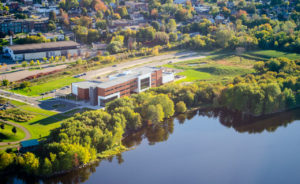Now is the time to embrace winter! Our Winterfest celebration is an opportunity to make a conscious effort to explore the Ottawa Valley. The Ottawa Valley is Ontario’s adventure playground, a year-round adventure destination but winter turns it into a fairy-tale destination that no one wants to miss. As the snow blankets the region, adventurers and nature lovers in the Ottawa valley head outside to indulge in various adventure activities as the magic unfolds. Here are some of the experiences you can do to quench your thirst for adventure this winter season.
-
Snowmobiling in the Depths of Winter: Winter in the Ottawa Valley means lots of snow and crisp temperatures – perfect snowmobiling weather for sledding enthusiasts. Over 2,550 km of groomed Trans Ontario Provincial (TOP) trails and local trails that wind through picturesque villages, along abandoned rail beds, past old mine sites and ghost towns provide ample memorable places to ride.
-
Gliding on the Snow Carpet: The serene environment ranging from tree-lined slopes, challenging vertical drops to gentle runs make it an ideal alpine skiing and snowboarding destination. Many true snow bunnies dream all year long with huge anticipation to glide through untouched powder on the slopes.
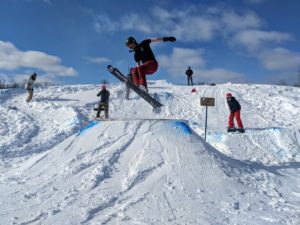 The options include Mount Pakenham, Calabogie Peak Resort, Mount Martin, Mount Molson etc. Mount Pakenham, located in Mississippi Mills, is Eastern Ontario’s premier family ski, snowboard and tubing location which is ideal for every enthusiast. At a height of 730 ft with a 280 ft vertical drop, this mountain offers 10 trails, plus glade trails, and 7 lifts to get you moving.
The options include Mount Pakenham, Calabogie Peak Resort, Mount Martin, Mount Molson etc. Mount Pakenham, located in Mississippi Mills, is Eastern Ontario’s premier family ski, snowboard and tubing location which is ideal for every enthusiast. At a height of 730 ft with a 280 ft vertical drop, this mountain offers 10 trails, plus glade trails, and 7 lifts to get you moving.Calabogie Peaks, the tallest public ski resort in Ontario, is an all-seasons resort located at the base of Dickson Mountain on the shores of Calabogie Lake. Apart from skiing and snowboarding, one can also stay and enjoy the best of what winter offers with many snowy adventures.
The Mount Martin Ski Club (MMSC) maintains 12 runs including a glade run and 2 terrain parks (with jumps, rails and boxes), and is served by a T-bar, right in the Town of Deep River. Most trails are groomed, and all runs are patrolled by volunteers from the Canadian Ski Patrol.
Located in the heart of Petawawa, the Petawawa Ski Club operates on the world’s smallest ski hill, known by the locals as Mount Molson which offers lessons for skiing and snowboarding.
-
 Skiing Cross Country Trails: The Valley presents an outstanding array of Nordic trails for winter sport enthusiasts. Here there are a variety of excellent and scenic cross-country trails winding through meadows and forests for various skill levels such as Silver Spoon Trails, Madawaska Nordic Trails, Opeongo Hills Nordic and Forest Lea Trails – with 1.5 km of lighted ski trails for night skiing.
Skiing Cross Country Trails: The Valley presents an outstanding array of Nordic trails for winter sport enthusiasts. Here there are a variety of excellent and scenic cross-country trails winding through meadows and forests for various skill levels such as Silver Spoon Trails, Madawaska Nordic Trails, Opeongo Hills Nordic and Forest Lea Trails – with 1.5 km of lighted ski trails for night skiing. -
Snowshoeing the Beautiful Backcountry: There isn’t any other better way to learn and be a part of our wonderful Canadian winters than simply getting out there and experiencing it first-hand. The Ottawa Valley is home to some terrific and pristine wilderness just waiting to be explored.
 All you need is a pair of snowshoes and you can explore hundreds of kilometres of amazing trails and wilderness routes. Moreover, there are numerous naturalist and interpretive trails such as Shaw Woods Outdoor Education Center, Kiwanis Walk Way and Petawawa Millennium Trail where you could learn more about the rich history and heritage of the place.
All you need is a pair of snowshoes and you can explore hundreds of kilometres of amazing trails and wilderness routes. Moreover, there are numerous naturalist and interpretive trails such as Shaw Woods Outdoor Education Center, Kiwanis Walk Way and Petawawa Millennium Trail where you could learn more about the rich history and heritage of the place. -
 Ice Fishing – Winter Pastime for Everyone: Cradled between the Ottawa River and Algonquin Park, the Ottawa Valley is home to over 900 lakes and 4 major river systems. There are ample opportunities for anglers to get out on the frozen lake or river to net a trophy fish. The Valley boasts 158,000 acres of water filled with more than 20 species of fish such as bass, walleye, northern pike, muskellunge etc. Premier destinations include the heritage Ottawa River, Lake Dore, Golden Lake etc. Be sure to check out the Laurentian Valley Ice Fishing Derby on February 27 – learn more.
Ice Fishing – Winter Pastime for Everyone: Cradled between the Ottawa River and Algonquin Park, the Ottawa Valley is home to over 900 lakes and 4 major river systems. There are ample opportunities for anglers to get out on the frozen lake or river to net a trophy fish. The Valley boasts 158,000 acres of water filled with more than 20 species of fish such as bass, walleye, northern pike, muskellunge etc. Premier destinations include the heritage Ottawa River, Lake Dore, Golden Lake etc. Be sure to check out the Laurentian Valley Ice Fishing Derby on February 27 – learn more. -

Source: Inside Ottawa Valley
Sharpen your Skates and Feel the Rush: What better way to celebrate winter than hitting the ice with friends and family? Explore and enjoy the cool, crisp air by slapping on a pair of skates and gliding the day away on one of our well-maintained municipal rinks and skating trails. The skating season is generally open from December through to March. There are a variety of options for the skaters ranging from indoor rinks to outdoor rinks and skating trails such as Laurentian Valley Skating Trail, Ma-Te-Way Park Trail and Deep River Skate Trail.
-

Enchanting Star Gazing at Westmeath Lookout: One of the best ways to find solace from the hustles of life and being in the moment in the chill of the winter is stargazing. Generally, due to so much light pollution in the cities, the view of the stars and constellations is not clear. However, on a clear night and away from the blinding lights, just 20 minutes drive from the city of Pembroke, one can escape to the countryside in the Whitewater Region of Ottawa Valley and enjoy the spectacular view of the stars at Westmeath Lookout.

Pembroke Heritage Murals Walk: Take a winter walk and stroll through Pembroke’s downtown to see Canada’s largest outdoor gallery featuring more than 30 large-scale murals depicting the history, settlement and heritage of the Ottawa Valley. These Murals are an illustrated record of Pembroke’s ever-changing history. Come and witness the story of the Pembroke area in Ottawa Valley.
Written by: Sachin Sethi, Recruitment Officer and Outdoor Adventure Naturalist Alumni
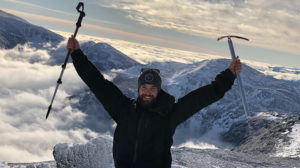

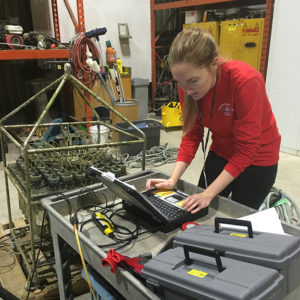
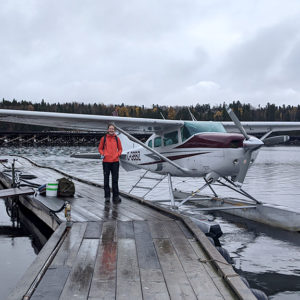
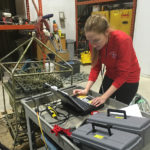
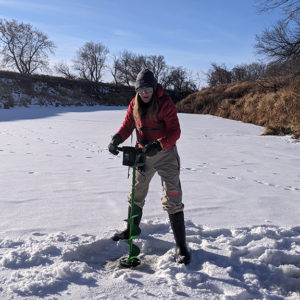
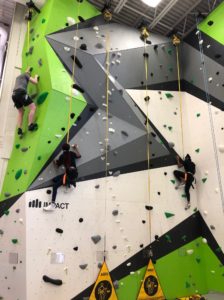


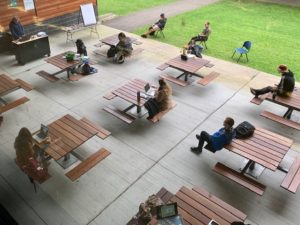
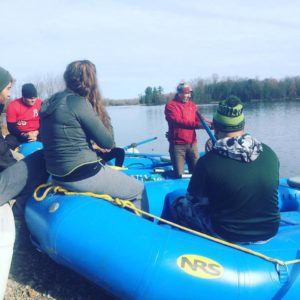
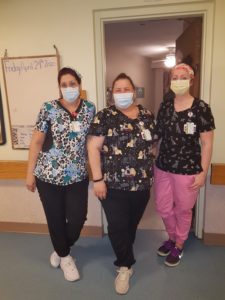



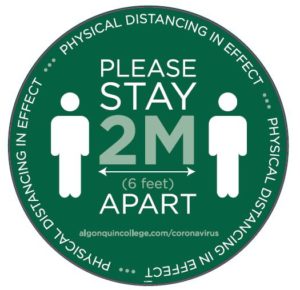



 Keep in touch if your student has re-located to Pembroke for their college program. Quick texts or phone calls to ask how things are going will help you get a feel for how they are adjusting to college life and their program of study.
Keep in touch if your student has re-located to Pembroke for their college program. Quick texts or phone calls to ask how things are going will help you get a feel for how they are adjusting to college life and their program of study.
